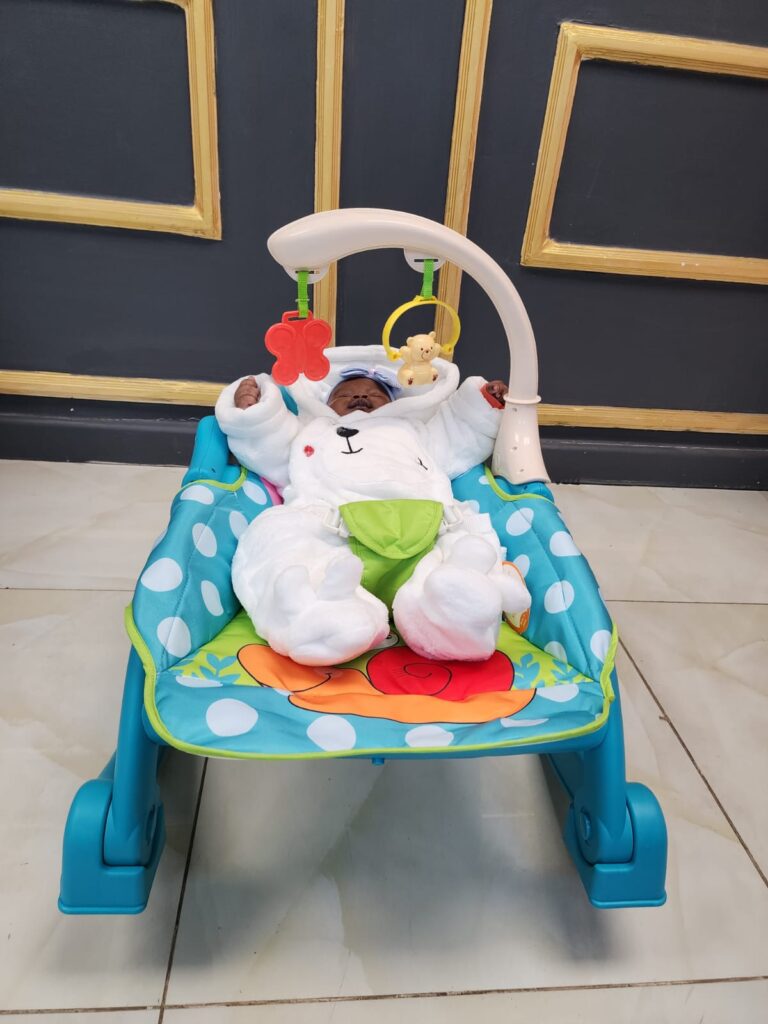
Being a new parent is a beautiful and challenging experience. Supporting your partner during this time is crucial as they navigate their new role. Here are some thoughtful things you can do for your partner who is a new parent:
Share baby care responsibilities: Be actively involved in caring for the baby. Learn how to change diapers, feed the baby, bathe them, and put them to sleep. By sharing the responsibilities, you’ll bond with your child and give your partner much-needed breaks.
Offer emotional support: Understand that your wife or partner may experience various emotions after giving birth, including joy, exhaustion, anxiety, or sadness. Be patient, empathetic, and listen attentively when she wants to talk. Validate her feelings and assure her that you’re there for her.
Be present during doctor visits: Accompany your partner to postnatal check-ups and doctor visits. This demonstrates your support and involvement in the baby’s health. It also provides an opportunity to ask questions, address concerns, and learn about newborn care together.
Plan date nights: Schedule regular date nights, even if they’re at home, where you can spend quality time together as a couple. It will give your partner a break from parenting duties and allow you both to reconnect.
Encourage rest and sleep: Lack of sleep can significantly impact your partner’s well-being. Encourage her to rest and sleep whenever possible. Offer to care for the baby at night, allowing her to sleep uninterrupted. Alternatively, you can take turns watching for the baby to ensure you get adequate rest.
Offer to run errands: Caring for a baby often leaves little time for other tasks. Offer to run errands such as grocery shopping, picking up prescriptions, or handling other necessary chores.
Encourage self-care rituals: Help create a relaxing atmosphere at home by encouraging your partner to indulge in self-care ways. This can include taking a long bath, practicing meditation or yoga, or reading a book.
Arrange social support: Connect your partner with other parents or new parent support groups. This will give them a community of people who understand what they’re going through and can offer advice, support, and friendship.
Show affection and intimacy: After giving birth, your partner’s body may undergo physical changes, and she may feel self-conscious. Offer affirmation, remind her of her beauty and strength, and be affectionate without pressuring her to engage in intimate activities before she’s ready.
Plan family outings: Organize outings or activities that the whole family can enjoy together. This will create precious memories and allow your partner to bond with the baby in a different setting.
Express gratitude: Regularly express gratitude for your partner’s efforts as a new parent. Acknowledge their hard work, love, and dedication to the baby and your family.
Remember, every parent is different, so it’s essential to communicate with your partner and understand their specific needs and preferences. By being supportive, understanding, and involved, you can help your partner adjust to their new role as a parent with love and confidence.




Ways To Connect AS A Couple After a New Baby
Becoming new parents is an exciting and transformative time in a couple’s life. It can also be challenging as the focus shifts to the baby’s needs. However, new parents must prioritize their relationship and find ways to strengthen it. Here are some suggestions:
Communicate openly: Effective communication is crucial in any relationship. Talk openly and honestly about your feelings, concerns, and expectations as new parents. Be willing to listen to each other’s perspectives and find solutions together.
Make time for each other: Despite the demands of parenthood, make it a priority to spend quality time together. Schedule regular date nights or even short periods during the day to reconnect and nurture your relationship.
Share parenting responsibilities: Distribute parenting duties fairly to avoid feelings of resentment or overwhelm. Create a shared plan for caring for the baby, including feeding, changing, and soothing. Working together as a team strengthens the bond between you.
Show appreciation and support: Acknowledge each other’s efforts and express gratitude for your contributions. Recognize and validate the challenges you face and offer support and encouragement.
Practice self-care: Taking care of yourself individually allows you to be a better partner and parent. Prioritize self-care activities, such as exercise, hobbies, or personal time, and encourage your partner to do the same. When you both feel energized and fulfilled, it benefits your relationship.
Keep the romance alive: Parenthood can sometimes overshadow the romance in a relationship. Try to keep the romance alive by surprising each other, showing affection, and expressing love. Simple gestures like leaving love notes or planning a special evening can go a long way.
Seek help and support: Don’t hesitate to ask for help when needed. Contact friends, family, or support groups for advice or assistance with parenting challenges. Taking care of your mental and emotional well-being helps maintain a healthy relationship.
Accept changes and adapt: Recognize that parenthood brings significant changes to your life. Embrace these changes together, understanding that it may take time to adjust. Be flexible and willing to adapt your routines and expectations as necessary.
Maintain a sense of humor: Parenting can be filled with unexpected situations and challenges. Maintaining a sense of humor can help diffuse tension and bring joy to your relationship. Find moments to laugh together and enjoy the journey of parenthood.
Attend couples’ therapy: If you find navigating the changes and strains of new parenthood challenging, consider seeking professional help. Couples therapy can provide a supportive environment to address concerns, enhance communication, and strengthen your bond.
Remember that every couple and situation is unique, so find what works best for you and your partner. By prioritizing and actively nurturing your relationship, you can build a strong foundation as you embark on your journey as a new parent.






Common Marriage Issues For New Parents And How To Solve Them
Lack of Communication: The demands of parenting can often lead to a lack of communication between partners. Maintaining open and honest communication is crucial to avoid misunderstandings and resentment. Set aside dedicated time each day to discuss your feelings, concerns, and any issues you may face.
Sleep Deprivation: New parents often experience sleep deprivation, leading to increased irritability and decreased patience. Develop a schedule that allows both partners to get sufficient rest. Take turns caring for the baby during the night, or ask for help from family or friends.
Division of Responsibilities: The added responsibilities of childcare can create disagreements about the division of household chores and parenting duties. Have an open discussion about expectations, and create a shared parenting plan that outlines specific responsibilities for each partner. Regularly review and adjust the plan as needed.
Decreased Intimacy: The arrival of a baby can significantly impact a couple’s intimate life. Prioritize quality time together by scheduling date nights or short moments of connection throughout the day. Communicate your needs and find ways to rekindle the romance, such as hiring a babysitter for occasional breaks.
Financial Stress: The financial burden of raising a child can strain a marriage. Create a budget together and discuss financial goals and priorities. Explore cost-saving strategies, such as buying second-hand baby items or finding free or low-cost activities for the family.
Emotional Support: New parents may experience various emotions, including stress, anxiety, and mood swings. It’s essential to provide emotional support to each other. Practice active listening, empathy, and validation. Consider joining a parenting support group or seeking professional counseling if needed.
Time for Self-Care: Balancing the baby’s needs and personal self-care can be challenging. Encourage each other to take breaks and engage in activities that promote self-care, such as exercising, pursuing hobbies, or spending time with friends. Support each other in finding time for self-care while also sharing responsibilities.
Every couple’s situation is unique, and finding best solutions for both partners is crucial. If you find that the issues persist or become overwhelming, seeking the guidance of a professional counselor or therapist can be beneficial in navigating these challenges together.
Written by Nila Baby Shop
Best Baby and Mother Products Store. Our main objective is to provide an exceptional online shopping experience, home delivery, and prompt customer service.
Leave a Reply